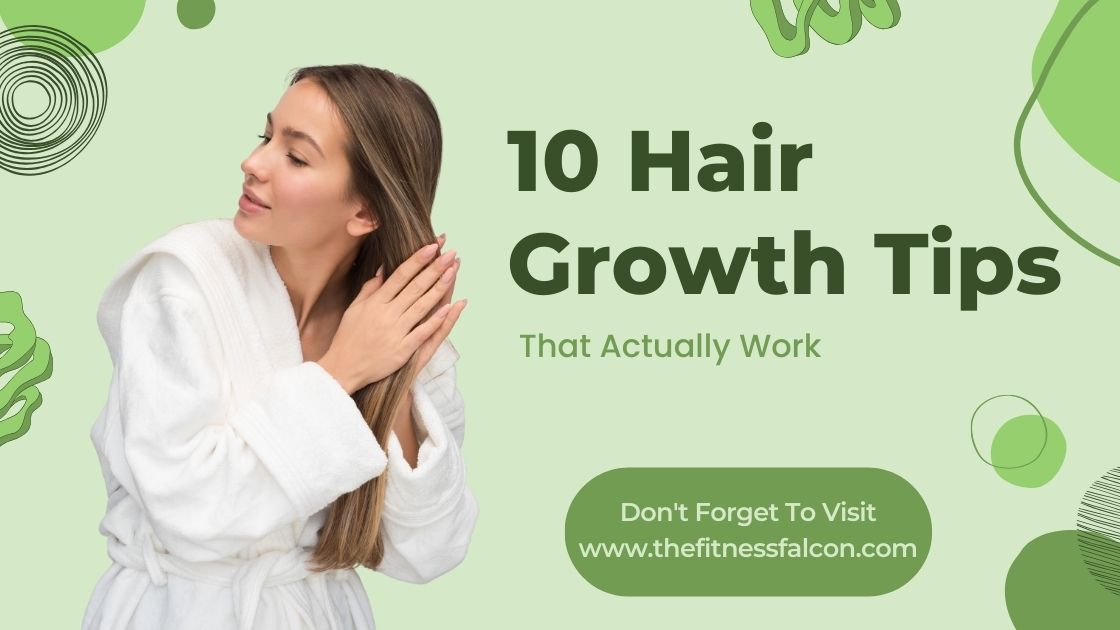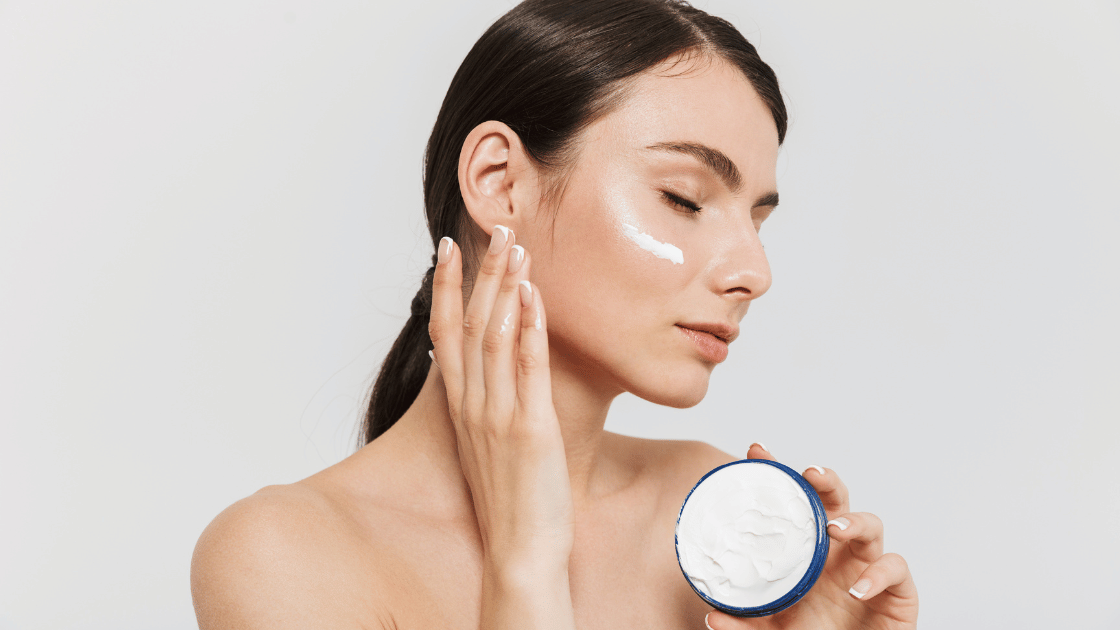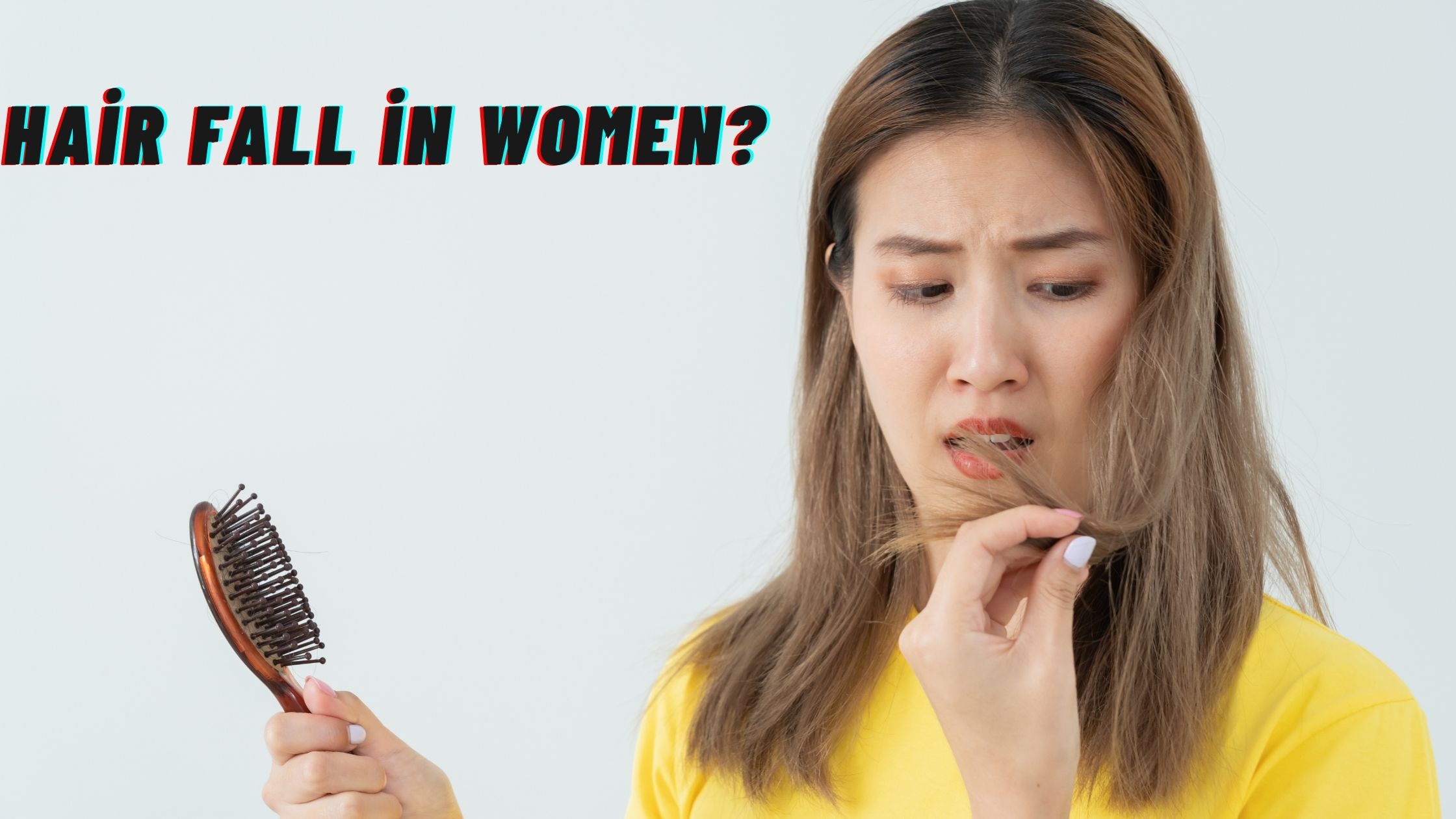Top 10 Hair Growth Tips That Actually Work: A Comprehensive Guide

Hair is often seen as a symbol of beauty and vitality. For many, maintaining healthy, thick, and long hair is a significant aspect of personal care. However, hair growth can sometimes be slow or hindered by various factors, including genetics, diet, stress, and overall health. The good news is that there are proven tips and methods that can help you achieve the luscious locks you’ve always wanted. In this comprehensive guide, we’ll explore ten hair growth tips that actually work, backed by science and expert advice.
Understanding Hair Growth: The Science Behind Beautiful Strands
Genetics
Genetics play a significant role in determining your hair growth patterns. If your family has a history of thick, fast-growing hair, there’s a good chance you’ll experience similar growth. However, genetics can also predispose individuals to conditions like androgenetic alopecia, commonly known as male or female pattern baldness.
Diet and Nutrition
Diet and nutrition are crucial for maintaining healthy hair. Protein, specifically keratin, forms the structural foundation of your hair. A diet rich in protein supports robust hair growth. Essential vitamins and minerals such as vitamins A, C, D, E, zinc, and iron contribute to optimal follicle health. Biotin (a B-vitamin) is particularly beneficial for strengthening hair and improving its texture.
Stress and Overall Health
Stress and overall health significantly impact hair growth. Chronic stress can lead to conditions like telogen effluvium, where hair prematurely enters the shedding phase. Managing stress through practices such as meditation and exercise can improve overall well-being and support healthier hair growth.
1. Maintain a Healthy Diet for Lush Locks
A well-balanced diet is essential for promoting hair growth. Your hair is mostly made up of keratin, a type of protein. Eating enough protein, about 50 grams per day, helps build and maintain strong, healthy hair.
Essential Vitamins and Minerals
To optimize hair growth, ensure your diet includes:
- Vitamin A: Promotes the production of sebum, which keeps the scalp healthy.
- Vitamin C: Enhances iron absorption and aids in collagen production.
- Vitamin D: Linked to the creation of new hair follicles.
- Vitamin E: Acts as an antioxidant that helps reduce oxidative stress on the scalp.
- Zinc: Critical for tissue growth and repair, including hair follicles.
- Iron: Facilitates oxygen transport to cells, including those that stimulate hair growth.
The Role of Biotin
Biotin, a B-vitamin, is renowned for its role in maintaining healthy hair. It aids in the production of keratin and can prevent thinning. Incorporating biotin-rich foods or supplements can support overall hair health.
Hydration
Proper hydration is often overlooked but plays a significant role in maintaining healthy hair. Water ensures that vital nutrients are delivered efficiently to your hair follicles. Aim to drink at least 8 glasses of water daily to keep your scalp and hair hydrated.
2. Prioritize Scalp Care: The Foundation of Hair Growth
Healthy hair starts with a healthy scalp. Regular scalp cleansing and exfoliation are critical steps to remove buildup from hair products, excess oils, and dead skin cells. This ensures that the hair follicles remain unclogged and capable of producing healthy strands.
Benefits of Regular Scalp Cleansing and Exfoliation
- Prevents Product Buildup: Overuse of styling products can lead to residue on the scalp, hindering hair growth.
- Reduces Dandruff: Regular exfoliation can help eliminate dandruff, which is often caused by an accumulation of dead skin cells.
- Promotes Follicle Health: Clean and exfoliated scalps provide a better environment for hair follicles to thrive.
Techniques for Effective Scalp Massage to Stimulate Follicles
Scalp massage enhances blood circulation, which can stimulate hair growth. Here are some effective techniques:
- Use Your Fingertips: Apply gentle pressure with your fingertips in circular motions across your scalp for about five minutes daily.
- Incorporate Essential Oils: Oils like rosemary and peppermint not only provide a soothing experience but may also promote hair growth.
- Massage Tools: Scalp massagers or brushes designed specifically for this purpose can offer deeper stimulation.
Prioritizing scalp care lays a strong foundation in your journey through these 10 Hair Growth Tips.
3. Use Effective Hair Growth Products That Work Wonders
Minoxidil: A Proven Follicle Stimulator
Minoxidil, commonly found in products like Rogaine, is a topical treatment known for its ability to stimulate hair follicles. Applied directly to the scalp, minoxidil works by widening blood vessels and increasing blood flow to hair follicles. This enhanced circulation delivers more oxygen and nutrients, promoting the growth phase of the hair cycle. Users often see results after consistent use for several months.
Biotin Supplements: Nourishing Hair from Within
Biotin, also known as vitamin B7, plays a crucial role in maintaining healthy hair. This water-soluble vitamin helps convert nutrients into energy and supports the production of keratin, a key protein in hair structure. Biotin supplements are widely available and can be an effective addition to a balanced diet for those experiencing hair thinning or breakage.
Essential Oils: Natural Boosters for Hair Health
Incorporating essential oils like rosemary and peppermint into your routine can provide additional benefits. These oils have been shown to improve scalp health and potentially stimulate hair growth by increasing circulation. Adding a few drops to your shampoo or using them in a scalp massage can enhance their effectiveness.
Using these products consistently can yield significant improvements in hair health and growth over time.
4. Minimize Heat and Chemical Damage: Protect Your Precious Strands
Limit Heat Styling
Heat styling tools such as flat irons, curling wands, and blow dryers can significantly compromise hair integrity. High temperatures strip away the natural moisture in your strands, leading to dryness, breakage, and split ends. If you often use these tools, it’s essential to apply a heat protectant spray before styling. These products create a barrier that reduces the amount of direct heat your hair absorbs.
Air-Dry When Possible
Air-drying your hair whenever possible is a healthier alternative. It allows your hair to retain its natural oils and moisture, promoting stronger and more resilient strands. If air-drying isn’t feasible for your routine, consider using a blow dryer with a cool setting to minimize damage.
Choose Gentle Products
Gentle products are crucial for maintaining hair health. Opt for sulfate-free shampoos and conditioners infused with natural ingredients like aloe vera, chamomile, and argan oil. These gentle products cleanse and condition without stripping your hair of its essential nutrients.
Try Natural Treatments
Natural treatments such as coconut oil or avocado masks can provide deep hydration and repair damage caused by heat styling and chemicals. Incorporating these treatments into your weekly routine helps restore your hair’s vitality.
By minimizing the use of heat styling tools and embracing gentle products and natural treatments, you can protect your precious strands from unnecessary damage.
5. Regular Trimming for Healthy Ends: A Key to Stronger Hair Growth
Keeping a trimming schedule is crucial for maintaining your hair in top shape. Experts suggest getting your hair trimmed every 8-12 weeks to get rid of split ends and stop further breakage. This regular routine helps make sure your hair stays healthy and lively.
Microtrimming, a new trend in hair care, involves cutting off just a tiny amount of hair—about 1/8th of an inch—every 4-6 weeks. This technique targets only the damaged tips, promoting healthier hair without significantly reducing length. By incorporating microtrimming into your routine, you can maintain long, luscious locks while minimizing the risk of split ends traveling up the hair shaft.
Key Benefits:
- Prevents Split Ends: Regular trimming and microtrimming help eliminate split ends before they worsen, maintaining the integrity of your hair.
- Reduces Breakage: By removing damaged ends, you lower the likelihood of breakage, allowing your hair to grow stronger and longer.
- Enhances Appearance: Consistent trims keep your hair looking neat, polished, and well-maintained.
Adopting a regular trimming routine is one of the most effective ways to support healthy hair growth. It aligns perfectly with other 10 Hair Growth Tips, ensuring that your journey towards lush locks is both practical and achievable.
6. Manage Stress Effectively: Nurturing Your Mind for Better Hair Health
Managing stress is crucial for healthy hair growth. Chronic stress can disrupt the hair growth cycle, leading to hair shedding or thinning. By managing stress effectively, you can create a better environment for your hair to grow.
Effective Relaxation Techniques
Incorporating effective relaxation techniques into your daily routine can significantly impact your overall well-being and hair health:
- Meditation: Practicing meditation helps calm the mind, reducing stress levels. Even just a few minutes of mindfulness meditation each day can make a noticeable difference.
- Deep Breathing Exercises: Simple deep breathing exercises can lower cortisol levels and help you manage stress more efficiently.
- Physical Activity: Regular exercise, such as yoga or walking, can reduce stress hormones and increase endorphins, improving both mental health and hair vitality.
The Importance of Sleep
Adequate sleep is another crucial factor in managing stress. Ensuring you get enough rest each night allows your body to repair and regenerate, which includes supporting healthy hair growth. Aim for 7-9 hours of quality sleep per night.
A holistic approach to stress management not only benefits your mental health but also fosters an optimal environment for hair growth.
7. Consider Hair Growth Supplements: A Boost from Within
When it comes to enhancing hair growth, supplements can play a significant role. Popular options include biotin and collagen supplements, both known for their positive effects on hair health.
Biotin: The Keratin Booster
Biotin (Vitamin B7) is essential for producing keratin, the protein that makes up your hair, skin, and nails. A deficiency in biotin can lead to thinning hair and brittle nails. Many find that biotin supplements help improve the strength and appearance of their strands.
Collagen: Strengthening from the Roots
Collagen supplements are another popular choice. It provides amino acids that are used to build hair proteins and strengthen the skin that contains your hair roots. This not only supports healthier hair growth but also keeps your scalp in optimal condition.
Vitamins: Essential Nutrients for Hair Health
Vitamins also play a crucial role:
- Vitamin A helps in the production of sebum, which moisturizes the scalp and keeps hair healthy.
- Vitamin C is a potent antioxidant that protects against oxidative stress caused by free radicals. It also aids in collagen production.
- Vitamin E improves blood circulation, ensuring that more nutrients reach the scalp and follicles.
While these supplements can provide a boost from within, it’s important to remember that they should complement a balanced diet rather than replace it. Always consult with a healthcare provider before starting any new supplement regimen to ensure it’s suitable for your needs.
8. Practice Gentle Hair Handling Techniques: Treat Your Tresses with Care
Taking care of your hair starts with how you handle it daily. Improper handling can lead to breakage and slow down growth.
Advantages of Using Wide-Tooth Combs:
- Reduces Breakage: Wide-tooth combs are designed to glide through your hair without causing unnecessary pulling or breakage. This is crucial for maintaining the integrity of each strand.
- Less Stress on Hair: These combs help in detangling knots gently, which is especially beneficial for those with curly or wavy hair types.
Risks Associated with Brushing Wet Hair:
- Increased Vulnerability: Wet hair is more elastic and prone to snapping compared to dry hair. Using a regular brush on wet hair can lead to significant breakage.
- Alternative Solutions: If you must detangle wet hair, opt for a wide-tooth comb or a brush specifically designed for wet hair, and always start from the tips, working your way up to the roots.
Other Gentle Hair Handling Tips:
- Silk Pillowcases: Switching to silk pillowcases can reduce friction between your hair and the fabric, minimizing breakage and split ends while you sleep.
- Avoid Tight Hairstyles: Styles that pull on the scalp can cause traction alopecia. Opt for looser hairstyles to protect your follicles.
Incorporating these gentle techniques into your routine not only prevents damage but also supports overall hair health, making them essential parts of any list of 10 Hair Growth Tips.
Also Read: Meditation for Beginners: Types and Health Benefits
9. Explore Medical Treatments as a Last Resort: When All Else Fails
When traditional methods don’t yield the desired results, considering medical treatments might be beneficial. These treatments are often more intensive and should be seen as a last resort.
Platelet-Rich Plasma (PRP) Therapy
- How It Works: PRP therapy involves drawing a small amount of your blood, processing it to concentrate the platelets, and then injecting this platelet-rich plasma back into your scalp.
- Benefits: Platelets contain growth factors that can stimulate hair follicles and promote hair growth.
Laser Therapy
- How It Works: Low-level laser therapy (LLLT) uses red light or near-infrared light to stimulate hair follicles.
- Benefits: This non-invasive treatment can increase blood flow to the scalp and enhance hair density.
Minoxidil Prescriptions
- Overview: Minoxidil is an FDA-approved topical treatment for hair loss available over-the-counter and by prescription.
- Application: Typically applied directly to the scalp, minoxidil can help extend the growth phase of hair follicles.
- Effectiveness: Clinical studies have shown that minoxidil can slow hair loss and promote regrowth in some individuals.
These medical treatments offer targeted solutions when other methods fall short. Always consult with a healthcare professional to determine the most appropriate course of action based on your specific needs.
10. Patience and Consistency Are Key: Embracing the Journey to Healthy Hair
Understanding that average hair growth is about half an inch per month helps set realistic expectations. It’s easy to feel impatient, but remembering this natural pace can keep you grounded.
Sticking to a routine with products and supplements is essential for seeing results. Incorporate habits like:
- Using a dedicated hair care regimen consistently
- Taking prescribed or recommended supplements daily
- Regularly practicing scalp massages and other beneficial techniques
Consistency in these practices allows your hair to benefit fully from each method. Just as plants need regular watering and sunlight, your hair thrives on steady care and attention.
Each person’s hair journey is unique, so what works for others might not work for you. Patience and perseverance are your best allies in nurturing healthy, beautiful strands. With time, dedication, and the right practices, you will see the progress you aim for.
Conclusion: Embrace Your Unique Hair Journey with Confidence!
Your hair journey is unique. Comparing it to others’ can be counterproductive. Focus on your progress and celebrate small victories along the way.
Maintaining a holistic approach to hair care involves:
- Balanced diet
- Proper scalp care
- Stress management
- Consistent routine
Consistency with the 10 Hair Growth Tips can lead to healthier, stronger hair. Remember, patience is essential. Healthy hair growth takes time and dedication.
“Embrace the process and trust in your unique journey.”
Confidence in your hair care routine will shine through in the vitality of your strands.
FAQs
What are some key factors that affect hair growth?
Hair growth is influenced by a variety of factors including genetics, diet, and overall health. Genetics determine the potential for hair growth, while a balanced diet rich in essential nutrients supports healthy hair. Additionally, stress and health conditions can significantly impact the growth cycle of hair.
How important is diet for hair health?
Maintaining a healthy diet is crucial for lush locks. Protein is essential as it forms keratin, the structural component of hair. Vitamins A, C, D, E, zinc, and iron play vital roles in optimal growth. Biotin, a B-vitamin, is particularly known for its benefits to hair health. Staying hydrated also contributes to overall hair vitality.
What scalp care practices can promote hair growth?
Prioritizing scalp care is fundamental for effective hair growth. Regular cleansing and exfoliation help remove buildup and promote a healthy environment for follicles. Techniques like scalp massage can stimulate blood circulation, enhancing nutrient delivery to the roots.
What should I consider when using hair growth products?
When selecting hair growth products, look for those containing minoxidil, which has been shown to stimulate follicles effectively. Biotin supplements can also support hair health. Additionally, essential oils may provide nourishment and enhance the effectiveness of your routine.
How can I minimize heat damage to my hair?
To protect your precious strands from heat damage, it’s important to minimize the use of heat styling tools whenever possible. Opt for air-drying techniques and choose gentle products or natural treatments that maintain your hair’s integrity without causing harm.
All content on this website is for general informational, educational, and entertainment purposes only. It is not a substitute for professional advice in any field, including but not limited to health, fitness, nutrition, wellness, finance, legal, technology, or lifestyle.
While we strive for accuracy, we make no guarantees about the completeness, reliability, or suitability of the information. Any action you take based on this content is at your own risk.
Always consult a qualified professional before making decisions related to health, finances, legal matters, or any other specialized area. The website and its authors are not liable for any loss, injury, or damage resulting from use of this information.






